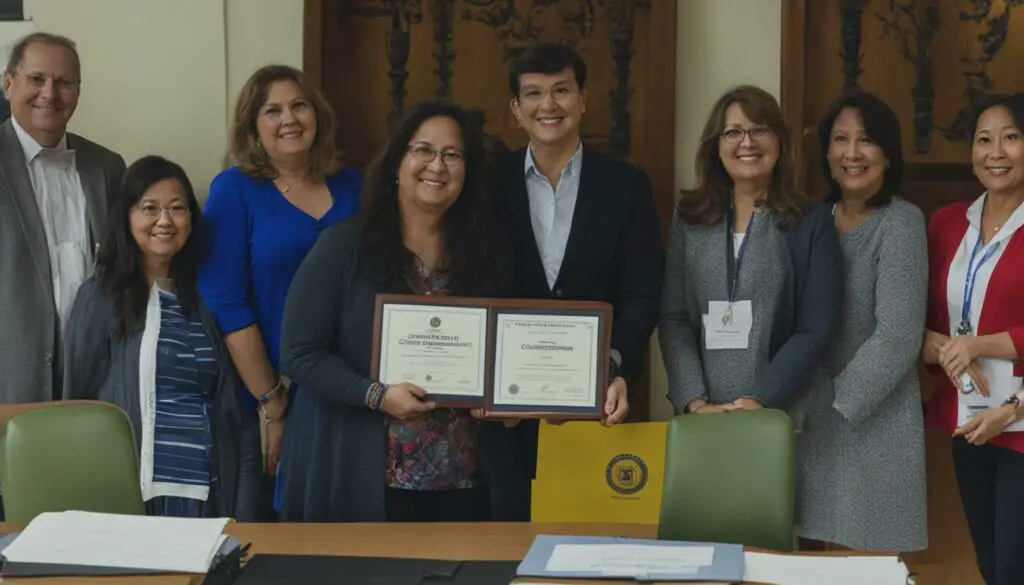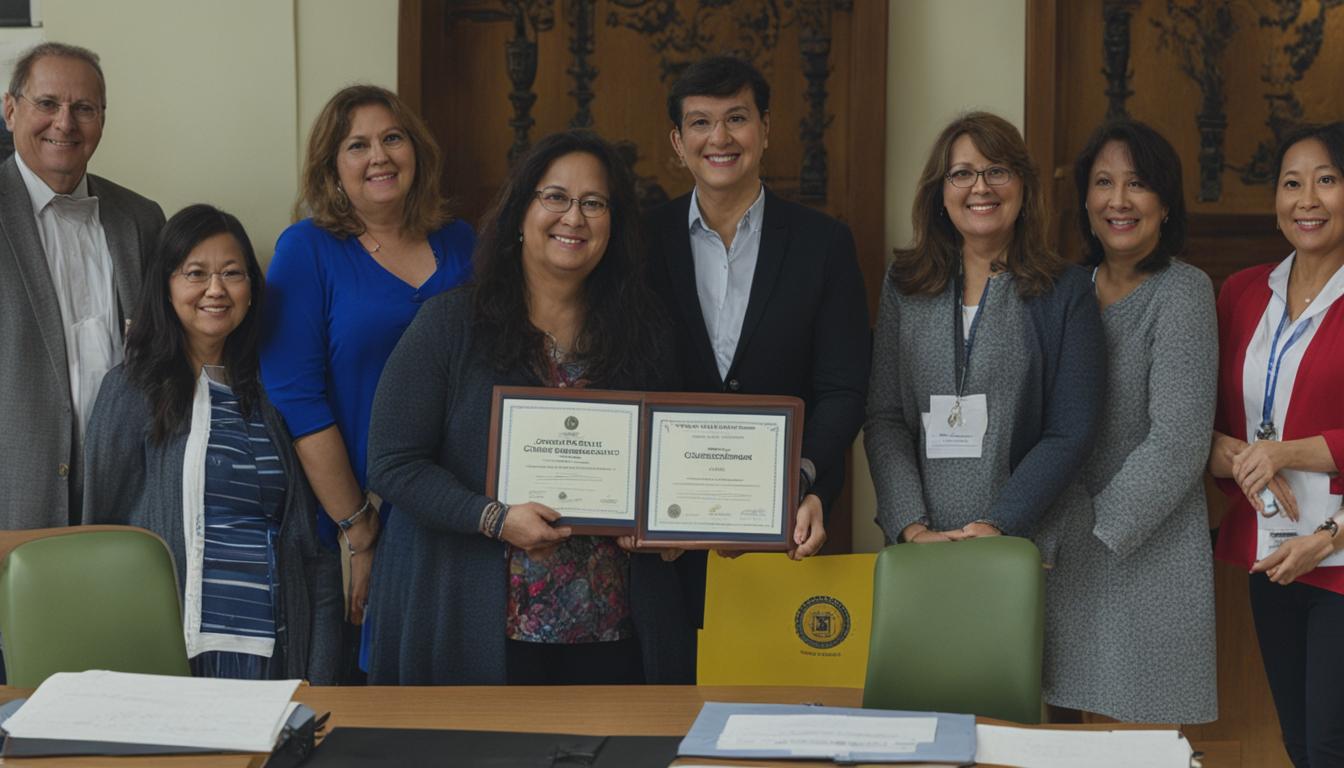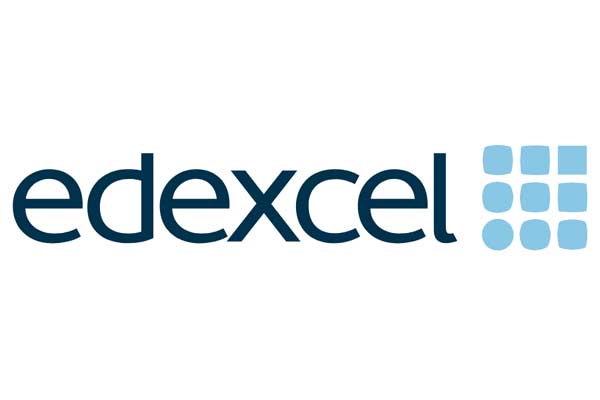Cambridge International Certificate vs. Diploma: Choosing the Right Path for IGCSE Teachers
When advancing qualifications and carving out a successful career in education, IGCSE teachers face a crucial decision.
The choice between the Cambridge International Certificate and Diploma programs can shape their professional growth and open new doors of opportunity. Finding the right path is essential.
Cambridge International offers these two distinct pathways, each with its own unique set of benefits and opportunities.
This article will help you decide between the Cambridge International Certificate and Diploma programs by explaining the important factors to consider.
From curricular frameworks and flexibility to global recognition and academic value, we will dive into the critical aspects that IGCSE teachers must evaluate.
Whether you are an aspiring teacher looking to enhance your qualifications or an experienced educator seeking new avenues for growth, this guide will equip you with the knowledge and insights to make an informed decision.
Cambridge International Certificate vs. Diploma
The Cambridge International Certificate and Diploma programs are two pathways for IGCSE teachers looking to advance their educational qualifications and careers.
While both programs offer valuable learning opportunities, teachers must understand the similarities and differences to make an informed decision.
The Certificate program is designed for teachers who want to develop their subject knowledge and teaching skills in a specific area. It provides a focused study in a single subject and allows teachers to enhance their expertise.
On the other hand, the Diploma program is a comprehensive qualification for teachers who seek a broader understanding of educational theory and practice. It covers a range of subjects and allows teachers to develop a well-rounded skill set in various areas of education.
The Diploma program equips teachers with the ability to take on leadership roles and provides a solid foundation for career progression.
🌟 Hey Students! 🚀 Ready for the ultimate experience? Join us on Studentsinside.com's Facebook, YouTube, WhatsApp, and LinkedIn. Click now for tips, fun, and success vibes! 🌈✨ #StudentLife #JoinUs
The Certificate and Diploma programs offer rigorous academic content and internationally recognized assessments. They aim to enhance teaching capabilities, promote professional growth, and broaden career opportunities for IGCSE teachers.
Curricular Framework and Flexibility of Cambridge International Programs
The academic offerings of Cambridge International programs are grounded in a robust curriculum.
These programs adopt a systematic and all-encompassing approach to education, guaranteeing students a balanced and thorough learning experience.
This method enables students to acquire the essential knowledge and skills required for success in the global community.
Comparing Subject Choices in Certificate and Diploma Programs
The Cambridge International Certificate and Diploma programs offer various subjects to cater to students’ diverse interests and academic goals.
The Certificate program allows students to focus on a specific study area, while the Diploma program offers a broader range of subjects.
The Certificate program allows students to choose subjects like Mathematics, English, Sciences, Humanities, and Languages.
On the other hand, the Diploma program expands the subject choices to include additional specialized subjects such as Economics, Computer Science, Psychology, and more.
Evaluating Flexibility for Teachers and Learners
Flexibility is crucial in Cambridge International programs, benefiting both teachers and learners. These programs offer flexibility in various aspects, allowing teachers and students to adapt to their needs and circumstances.
For teachers, the flexibility of Cambridge International programs allows them to choose the subjects they are passionate about and qualified to teach. This ensures that teachers can deliver high-quality education in their areas of expertise, fostering a conducive learning environment.
Similarly, learners can benefit from the flexibility of Cambridge International programs by selecting subjects that align with their interests and strengths.
This enables them to explore their passions and understand the subjects they are most enthusiastic about.
Understanding the Assessment Methods
Cambridge International program assessment methods are crafted to assess students’ understanding and abilities thoroughly.
These programs employ a combination of coursework, practical assessments, and examinations to assess students’ understanding and application of the subjects.
Coursework assignments allow students to demonstrate their research, analytical, and critical thinking abilities.
Practical assessments evaluate students’ ability to apply their knowledge in real-world scenarios, while examinations allow students to showcase their overall understanding of the subjects.
Through these various assessment methods, Cambridge International programs ensure that students’ academic achievements accurately reflect their abilities and provide a well-rounded assessment of their skills and knowledge.

Global Recognition and Academic Value: Certificate vs. Diploma
In the previous sections, we explored the differences and similarities between the Cambridge International Certificate and Diploma programs. Now, let’s delve into the global recognition and academic value offered by these qualifications.
University Acceptance and Career Opportunities
One of the critical considerations for IGCSE teachers when choosing between the Certificate and Diploma programs is university acceptance and career opportunities.
Both qualifications are highly regarded by universities worldwide, providing teachers with a solid foundation for further education and career advancement.
The Cambridge International Certificate empowers teachers with a deep understanding of their subject, providing them with valuable knowledge and skills to enhance their teaching.
This qualification allows teachers to pursue advanced degrees or specialized certifications in their chosen field.
On the other hand, the Cambridge International Diploma offers a more extensive and in-depth curriculum, giving teachers a broader range of subject knowledge and expertise.
Universities highly value this qualification, particularly in competitive fields such as science, mathematics, and languages. Teachers with a Diploma may have a competitive advantage in university admissions and career progression.
Geographical Acceptance of Cambridge Qualifications
The global recognition of Cambridge qualifications is not limited to specific regions or countries.
Educational institutions worldwide accept and respect the Cambridge International Certificate and Diploma, making them highly portable qualifications for teachers seeking international career opportunities.
Whether a teacher plans to teach in their home country or explore teaching positions abroad, the Cambridge International qualifications provide a strong foundation for success.
These qualifications are recognized by various national education systems, private schools, and international schools, offering teachers various career options across different geographical locations.
| Qualification | Global Recognition | University Acceptance | Career Opportunities |
|---|---|---|---|
| Cambridge International Certificate | High | University acceptance rates are competitive, providing opportunities for further education. | Opens doors to a wide range of teaching positions and career advancement. |
| Cambridge International Diploma | High | Highly valued by universities, particularly in competitive fields. | Enhances career prospects with specialized knowledge and expertise. |
Teacher’s Certification for Cambridge International Programs
To ensure the delivery of quality education, teacher certification for Cambridge International programs plays a crucial role.
These certification programs provide educators with the necessary skills and knowledge to excel in their careers and effectively guide their students.
Cambridge International offers a range of teacher certification programs specifically designed to enhance teaching abilities and expertise within the context of Cambridge International programs.
These programs are tailored to meet the unique requirements of educators working with students pursuing Cambridge International qualifications.
Cambridge International teacher’s certification programs have a comprehensive curriculum encompassing coursework, exams, and practical teaching experience.
Through coursework, teachers deeply understand the Cambridge syllabus, teaching methodologies, and assessment strategies. This knowledge equips educators with the tools to create engaging learning experiences and effectively evaluate their students’ progress.
Exams within the teacher’s certification programs validate the teachers’ knowledge and understanding of the subject matter. These exams assess their ability to apply pedagogical principles and effectively communicate concepts to students.
One of the critical components of Cambridge International teacher’s certification programs is the practical teaching experience. Teachers are required to complete a certain number of teaching hours under the mentorship of experienced educators.
This hands-on teaching practice allows teachers to apply the knowledge gained through coursework and exams in a classroom setting, further honing their teaching skills and gaining valuable practical insights.
Teacher certification for Cambridge International programs is highly valued and recognized by educational institutions worldwide.
It validates educators’ expertise and qualifications and opens doors to new opportunities for professional growth and career advancement.
Cambridge International-certified teachers are well-prepared to excel in their teaching careers and contribute to the progressive field of education.

Comparative Advantages: Choosing Between Certificate and Diploma for Career Growth
When advancing one’s career in education, choosing between the Cambridge International Certificate and Diploma can be a crucial decision.
Both qualifications offer valuable skills and knowledge, but understanding their comparative advantages is essential for long-term career prospects.
Professional Development and Continuing Education
One of the critical factors to consider when deciding between the Cambridge International Certificate and Diploma is the opportunities for professional development.
Both programs provide teachers with a solid foundation in curriculum design, assessment strategies, and pedagogical approaches.
However, the Diploma program generally offers a more comprehensive and in-depth exploration of these areas, allowing educators to develop specialized expertise.
Furthermore, the Diploma program often incorporates practical teaching experiences, such as internships or student teaching, which can enhance a teacher’s real-world skills and classroom management abilities.
These firsthand experiences contribute to professional growth and preparation for long-term success in the education field.
Continuing education is also a crucial aspect of career growth for teachers. The Cambridge International Certificate and Diploma programs offer a range of opportunities for teachers to stay updated on the latest educational research, instructional methods, and technological advancements.
Through workshops, conferences, and online courses, educators can expand their knowledge and apply innovative teaching techniques in their classrooms.
Long-term Career Prospects in Various Education Systems
Choosing between the Cambridge International Certificate and Diploma can also impact long-term career prospects in different education systems.
While both qualifications are recognized globally, the diploma is often considered more advantageous in certain countries and educational contexts.
The Diploma program may provide a competitive edge for those seeking employment opportunities in countries that prioritize comprehensive academic qualifications, such as the United Kingdom or Australia.
The in-depth coursework and practical experiences offered by the Diploma can align with the requirements and expectations of these education systems.
On the other hand, the Certificate program may be more suitable for teachers looking to specialize in specific subject areas or pursue careers in countries where flexibility and subject expertise are highly valued.
Teachers with the Certificate qualification can often find niche teaching roles or opportunities for curriculum development in subjects they excel in, providing unique advantages in specific education systems.
Ultimately, the choice between the Cambridge International Certificate and Diploma should be based on a teacher’s career goals, personal interests, and the specific requirements of the education systems they aspire to work in.
It’s essential for educators to carefully evaluate their long-term career prospects and consider how each qualification aligns with their professional aspirations.
Cambridge International Academic Qualifications: A Gateway to Progressive Education
Cambridge International’s academic qualifications are essential for getting a good education. These qualifications help IGCSE teachers learn the skills and knowledge they need to do well in today’s changing education system.
Cambridge International ensures teachers understand the newest ideas and methods in education, helping them stay good at their jobs.
Teachers gain expertise in instructional design, curriculum development, and assessment strategies through comprehensive coursework and rigorous assessments.
This enables educators to design captivating lesson plans and customize their teaching approaches to accommodate the diverse needs of learners. By prioritizing critical thinking, creativity, and problem-solving skills, these qualifications prepare teachers to cultivate the growth of globally competent individuals in the next generation.
The importance of Cambridge International qualifications in shaping the future of education cannot be overstated. As education systems worldwide embrace a student-centric approach, teachers with these qualifications are in high demand.
Their expertise in designing learner-centered curricula and delivering dynamic lessons sets them apart in the competitive job market.
Moreover, these qualifications open various career opportunities in international schools, educational consultancy firms, and research organizations.
FAQ
What is the difference between the Cambridge International Certificate and Diploma?
The Cambridge International Certificate and Diploma programs are both academic qualifications offered by Cambridge International to IGCSE teachers. The Certificate program focuses on mastering a specific subject, while the Diploma program provides a more comprehensive education.
How do the subject choices compare between the Certificate and Diploma programs?
The certificate program allows teachers to choose a specific subject in which to specialize. In contrast, the Diploma program includes a broader range of subjects and provides a more well-rounded educational experience.
How flexible are the Cambridge International programs for teachers and learners?
Both the Certificate and Diploma programs offer flexibility to teachers and learners. Teachers can select subjects based on their interests and expertise, while learners can tailor their studies to suit their individual goals and aspirations.
What assessment methods are used in the Cambridge International programs?
The assessment methods in both the Certificate and Diploma programs include coursework, exams, and practical teaching practice. These methods aim to holistically evaluate a teacher’s knowledge, skills, and ability to deliver quality education.
Are the Cambridge International Certificate and Diploma globally recognized and valued academically?
Yes, both the Certificate and Diploma programs are highly regarded and recognized worldwide for their academic rigor and quality. They provide students with valuable qualifications respected by universities and employers in various fields.
What are the university acceptance rates and career opportunities for graduates of the Cambridge International programs?
Graduates of the Cambridge International programs have high university acceptance rates and are well-positioned for successful careers in education and other industries. These qualifications open doors to a wide range of academic and professional opportunities.
Are the Cambridge International qualifications accepted and recognized by educational systems globally?
Yes, Cambridge International qualifications have global acceptance and recognition by educational systems in many countries. They are highly regarded for their academic rigor and are considered equivalent to national qualifications in several regions.
What certification options are available for teachers in the Cambridge International programs?
The Cambridge International programs offer teacher certification options, ensuring teachers have the necessary skills and knowledge to deliver quality education. Certification includes coursework, exams, and practical teaching practice.
How do Cambridge International qualifications compare in terms of career growth?
Choosing between the Cambridge International Certificate and Diploma depends on individual career goals. The Certificate program allows teachers to specialize in a specific subject, while the Diploma program offers a broader foundation for career growth in various education systems.
What professional development and continuing education options are available for teachers in the Cambridge International programs?
Teachers in the Cambridge International programs have access to a wide range of professional development opportunities and continuing education options. These resources help teachers stay updated with the latest educational practices and enhance their teaching skills.
What are the long-term career prospects in various education systems with Cambridge International qualifications?
With Cambridge International qualifications, teachers can pursue rewarding careers in various education systems worldwide. These qualifications equip teachers with the necessary skills and knowledge to excel in innovative, student-centered teaching methods.
How do Cambridge International’s academic qualifications act as a gateway to progressive education?
Cambridge International academic qualifications provide teachers with the knowledge and skills needed for progressive education.
These qualifications emphasize critical thinking, problem-solving, and creativity, empowering teachers to create engaging and inclusive learning environments.







